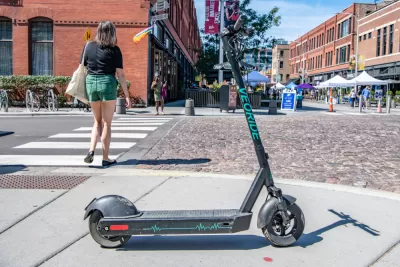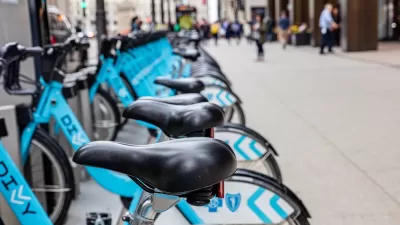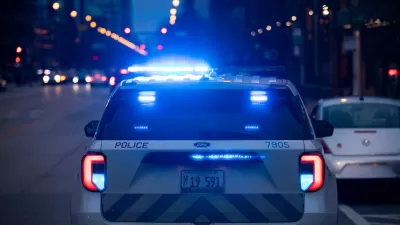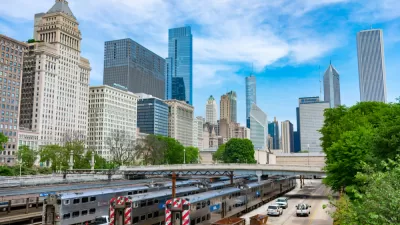After two pilots, Chicago has permanently legalized e-scooters in the city, but the equity provisions remain to be worked out.

After two pilot programs and a series of public testimonies, e-scooters are returning to Chicago permanently.
The City Council Transportation Committee passed an ordinance on October 13 that would allow three companies to deploy about 12,500 scooters citywide starting next year, making e-scooters an integral part of the city’s transportation system. (Bird, Lime and Spin, as participants in the last city pilot, are likely the three companies, but they will have to re-apply.)
The e-scooter program showed some early success during both pilots. In the 2020 pilot, running at a much bigger scale than in 2019, an average of more than 4,000 trips were taken daily. More than 80% of the riders surveyed believed that scooters should be part of the city’s transportation future. E-scooter-related calls to 311, including complaints about sidewalk riding or devices being locked to private property, dropped by 75% compared to the 2019 pilot. Most injuries reported were minor and usually to scooter users themselves rather than to pedestrians.
Olatunji Oboi Reed, president and CEO of mobility justice advocacy group Equiticity, is excited to see the new transit alternative coming to his neighborhood. Born and raised on the south side of Chicago, Reed has seen firsthand how transportation inequities adversely impact majority Black and brown communities. Those communities have the fewest transportation choices, the longest commutes, the highest concentration of industrial centers and truck traffic. “We don’t have the luxury of picking and choosing which mode of travel we want available in our neighborhoods,” says Reed. “The severity of the inequities is too vast [so] we must have every single mode of travel delivered to our doorstep.”
FULL STORY: Chicago’s E-Scooter Program Is Now Permanent. But Will It Be Equitable?

Alabama: Trump Terminates Settlements for Black Communities Harmed By Raw Sewage
Trump deemed the landmark civil rights agreement “illegal DEI and environmental justice policy.”

Study: Maui’s Plan to Convert Vacation Rentals to Long-Term Housing Could Cause Nearly $1 Billion Economic Loss
The plan would reduce visitor accommodation by 25% resulting in 1,900 jobs lost.

Planetizen Federal Action Tracker
A weekly monitor of how Trump’s orders and actions are impacting planners and planning in America.

Waymo Gets Permission to Map SF’s Market Street
If allowed to operate on the traffic-restricted street, Waymo’s autonomous taxis would have a leg up over ride-hailing competitors — and counter the city’s efforts to grow bike and pedestrian on the thoroughfare.

Parklet Symposium Highlights the Success of Shared Spaces
Parklets got a boost during the Covid-19 pandemic, when the concept was translated to outdoor dining programs that offered restaurants a lifeline during the shutdown.

Federal Homelessness Agency Places Entire Staff on Leave
The U.S. Interagency Council on Homelessness is the only federal agency dedicated to preventing and ending homelessness.
Urban Design for Planners 1: Software Tools
This six-course series explores essential urban design concepts using open source software and equips planners with the tools they need to participate fully in the urban design process.
Planning for Universal Design
Learn the tools for implementing Universal Design in planning regulations.
Caltrans
Smith Gee Studio
Institute for Housing and Urban Development Studies (IHS)
City of Grandview
Harvard GSD Executive Education
Toledo-Lucas County Plan Commissions
Salt Lake City
NYU Wagner Graduate School of Public Service





























